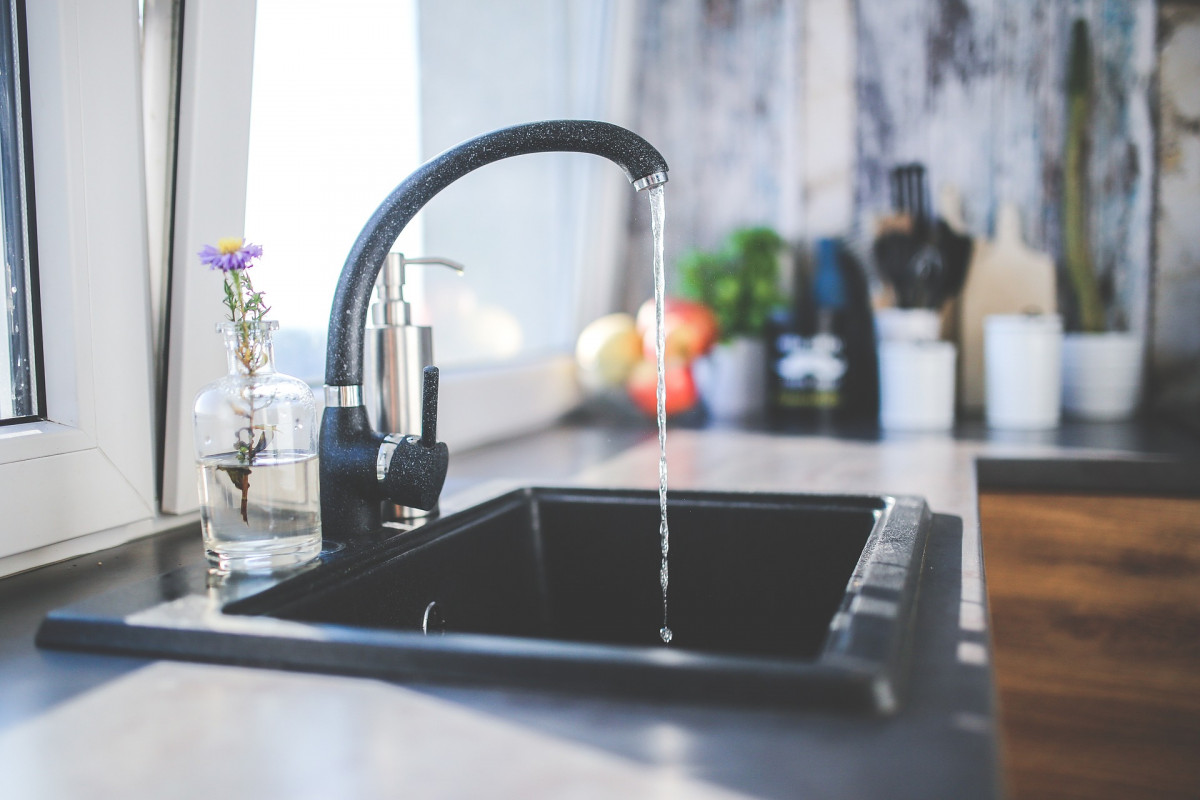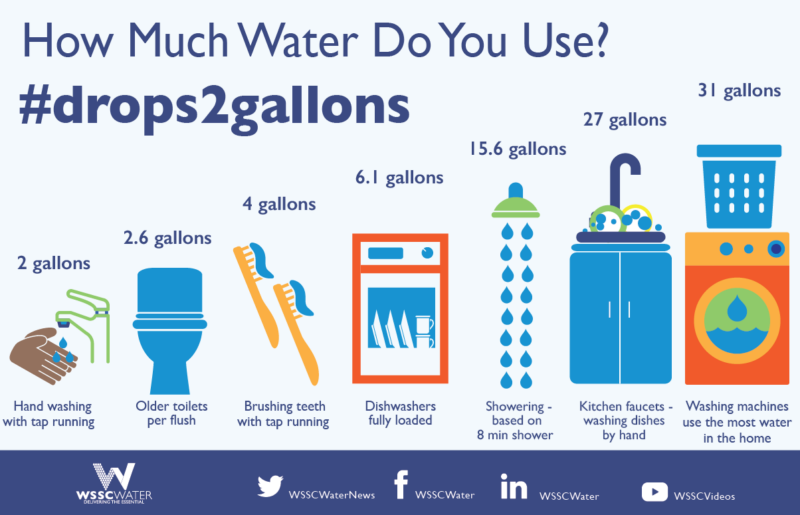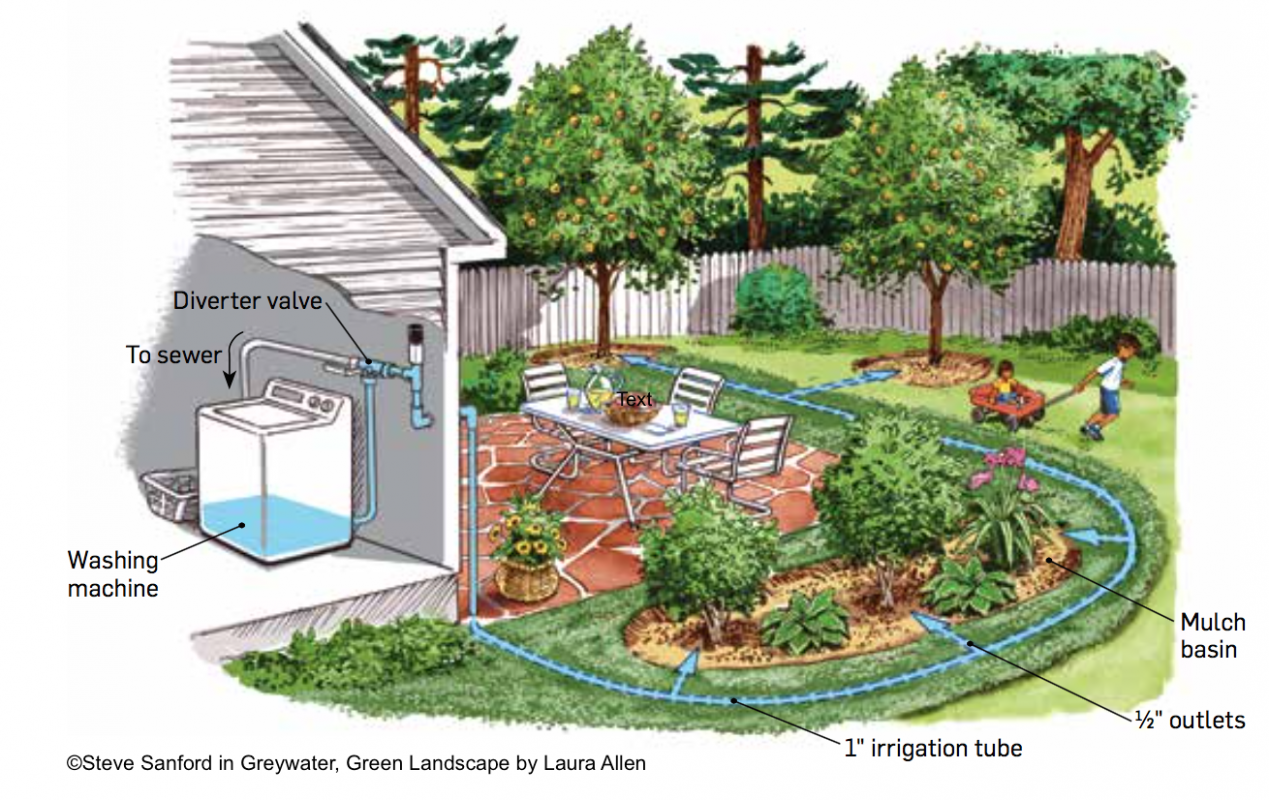 Imagine a warm shower: water flows off your shoulders and down the drain. What happens to this water next?
Imagine a warm shower: water flows off your shoulders and down the drain. What happens to this water next?
In most homes, it’s piped away to a sewer treatment plant or a septic system, where the water is cleaned and then discharged.
Standard plumbing systems mix all the water together, from toilets, showers, sinks and washing machines. There are new and better systems that keep cleaner sources of wastewater separate so they can easily be reused.
What is Greywater?
Greywater refers to water from sinks, showers, baths, and washing machines. Basically, it’s all the water used in the home, except the toilet. Toilet water contains feces and is not safe to reuse in your home.
Greywater is slightly dirty, containing soaps, hair, and lint, but it can be a great source of irrigation water for your outdoor plants. Plants grow in dirt and don’t need the same clean water as people do. To safely reuse greywater, make sure to use soaps that are low in salts and boron (borax), so they are healthy for your plants.
How to Reuse Greywater
 Using greywater lets you use water twice: inside for washing and outside for irrigation. A washing machine greywater system is one of the most popular options.
Using greywater lets you use water twice: inside for washing and outside for irrigation. A washing machine greywater system is one of the most popular options.
Here’s how it works. The washing machine hose connects to a diverter valve that allows you to choose where to send the water (either outside to the yard, or back to the sewer). Pipes and tubes direct greywater to trees, bushes, and other plants in the landscape. A basin of wood chips filters and soaks up greywater, delivering it right to the roots of the plants.
More complex systems filter and pump greywater into irrigation systems. Larger buildings may use sophisticated systems to clean the water even more to flush toilets.
A Win-Win solution
Using greywater to irrigate plants saves water and also turns a waste product into a resource. Greywater can be used to grow trees that clean the air and cool buildings with their shade. It can be used for growing food, habitat plants for birds, or even building materials like bamboo. Moist landscapes are resistant to fires, so greywater can help protect homes from wildfires.
 As climate change increases droughts and water shortages, people all over the world are turning to greywater for a solution. It’s especially popular in dry Australia, South Africa, and the western United States. A high school in Ojai, California installed greywater systems to irrigate trees and reduce the amount of water the school uses from a nearby creek.
As climate change increases droughts and water shortages, people all over the world are turning to greywater for a solution. It’s especially popular in dry Australia, South Africa, and the western United States. A high school in Ojai, California installed greywater systems to irrigate trees and reduce the amount of water the school uses from a nearby creek.
Kids are learning about greywater in science clubs and participating in water conservation contests. In 2021, 5th and 6th graders from Munsey Elementary School, in Bakersfield, CA, won the grand prize in a statewide contest for their greywater project. They showed how greywater soaked into saline soils better than freshwater.
Want to recycle your household greywater? It’s easy to put a bucket in your shower and catch water as it heats up, or put a dishpan in the sink when you wash dishes. Carry this water to plants outdoors. Think a greywater system may work for you? Talk to your adults and share these resources with them.
By reusing the water we already have in our homes, we can use less freshwater, grow beautiful plants, and leave more water in nature for other living things.








